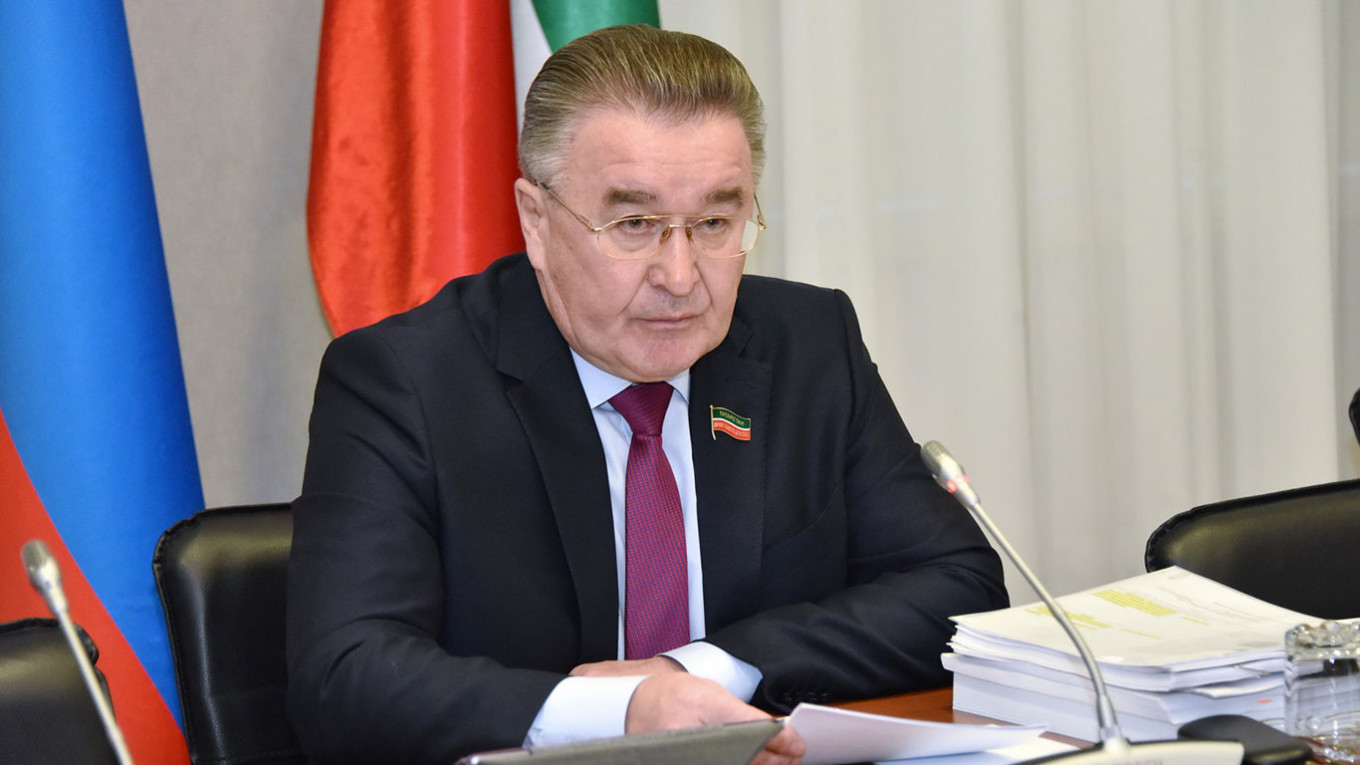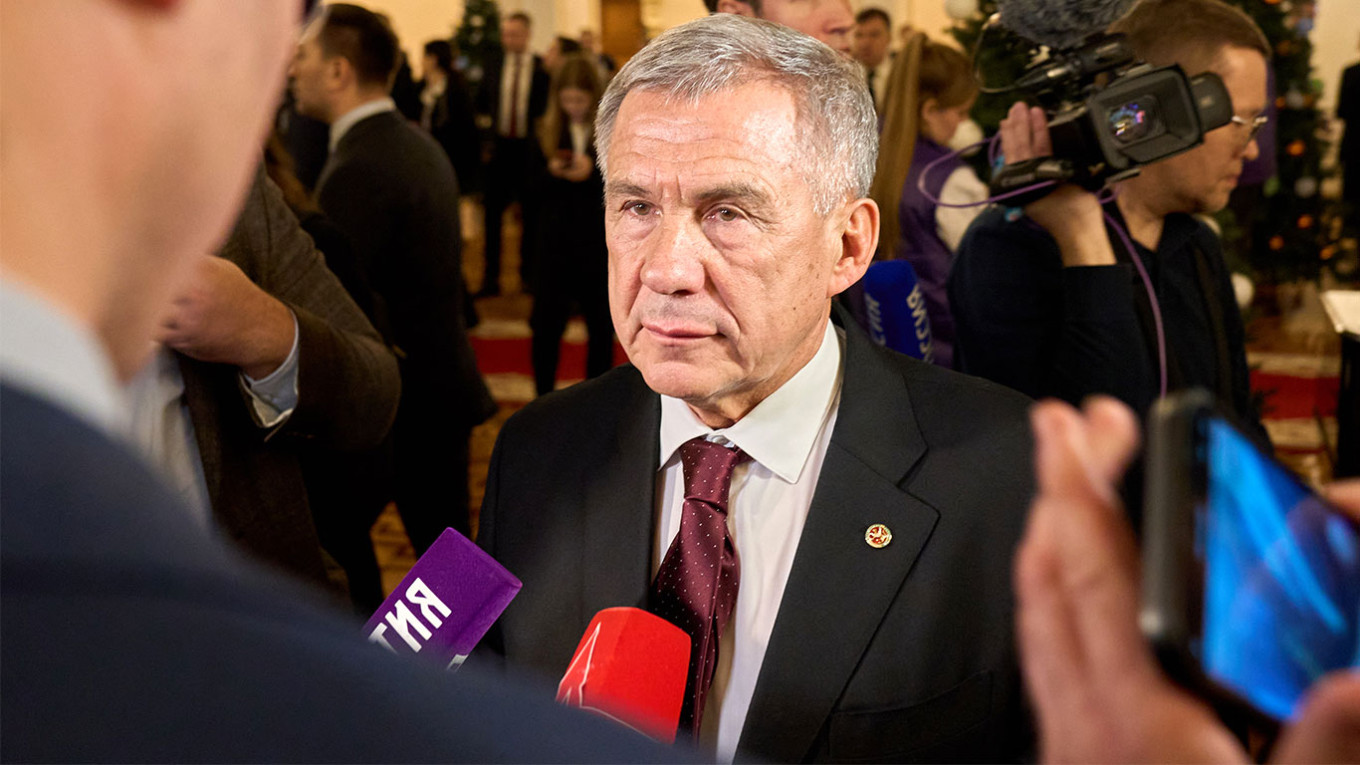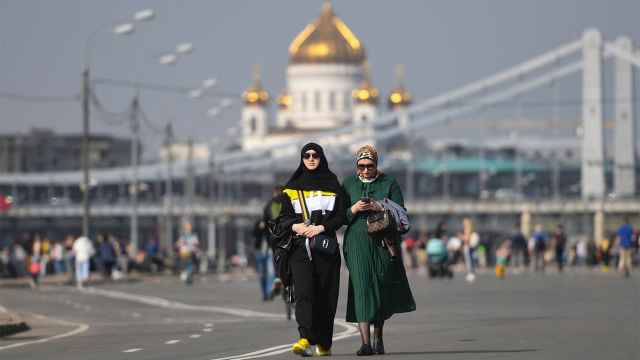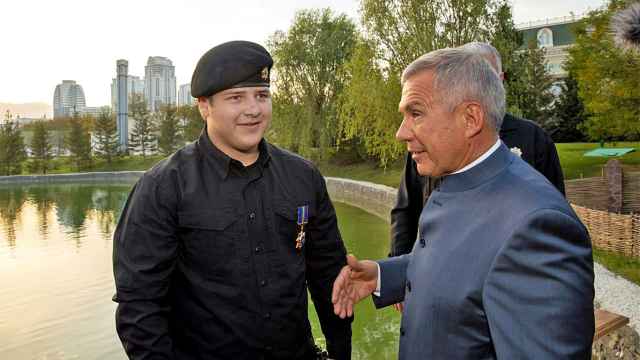In a rare show of defiance toward the federal government in Moscow, regional politicians in Tatarstan on Thursday rejected a set of amendments to its constitution that would have, among other measures, demoted the republic's leader from "president" to "head" as the Kremlin continues its attempt to rein in Russia's regions.
While at one point 13 Russian regions called their elected heads "presidents," a campaign of rigorous centralization fought by the Kremlin over the past decade has drastically curtailed the term's use, leaving Tatarstan's Rustam Minnikhanov the only regional leader in Russia still to use the title.
Tatarstan has long been hailed by experts as a paradigm of federalism for its government’s ability to retain broad political and economic autonomy, bucking the prevailing trend seen elsewhere in Russia.
Despite this, the regional parliament in the capital Kazan was expected to adopt amendments to Tatarstan's constitution by the end of the year to bring it in line with Russia’s 2020 constitution and a 2021 law abolishing regional presidencies.
However, a large majority of its deputies refused to support the measure at a committee hearing on Thursday and overwhelmingly voted the bill down.
“How will we explain this to our voters? Why are we making these changes? Doesn't our constitution already work?” regional deputy Nikolay Rybushkin, a member of the ruling United Russia party, asked during the Thursday session, according to news outlet Idel.Realii.
“If we cancel everything now and go on living under new laws, we will be questioning the very foundation of the Russian state,” another United Russia deputy, Marat Galeev, said according to Idel.Realii.
The draft law introducing the constitutional amendments was put forward by a group of 37 deputies on Wednesday. Its provisions included the removal from the constitution of any mention of Tatarstan’s state sovereignty or the region's special citizenship regime.

Despite this representing rare opposition to a Kremlin-sponsored measure, regional analysts agree that the incident is unlikely to put an end to the redrafting of Tatarstan's constitution or to spark conflict between Kazan and Moscow.
Tatar political expert and journalist Ruslan Aysin said the vote was the Tatarstan deputies’ way of making their disagreement with Moscow’s policy known as well as an attempt to save face amid a Kremlin power grab.
Whatever their personal opinion, the deputies risk being dismissed from their posts if they don't ultimately approve the measures, Aysin added.
"This is about the honor and dignity of these deputies," Aysin told The Moscow Times. "One has to have serious courage to do this."
A Message from The Moscow Times:
Dear readers,
We are facing unprecedented challenges. Russia's Prosecutor General's Office has designated The Moscow Times as an "undesirable" organization, criminalizing our work and putting our staff at risk of prosecution. This follows our earlier unjust labeling as a "foreign agent."
These actions are direct attempts to silence independent journalism in Russia. The authorities claim our work "discredits the decisions of the Russian leadership." We see things differently: we strive to provide accurate, unbiased reporting on Russia.
We, the journalists of The Moscow Times, refuse to be silenced. But to continue our work, we need your help.
Your support, no matter how small, makes a world of difference. If you can, please support us monthly starting from just $2. It's quick to set up, and every contribution makes a significant impact.
By supporting The Moscow Times, you're defending open, independent journalism in the face of repression. Thank you for standing with us.
Remind me later.







